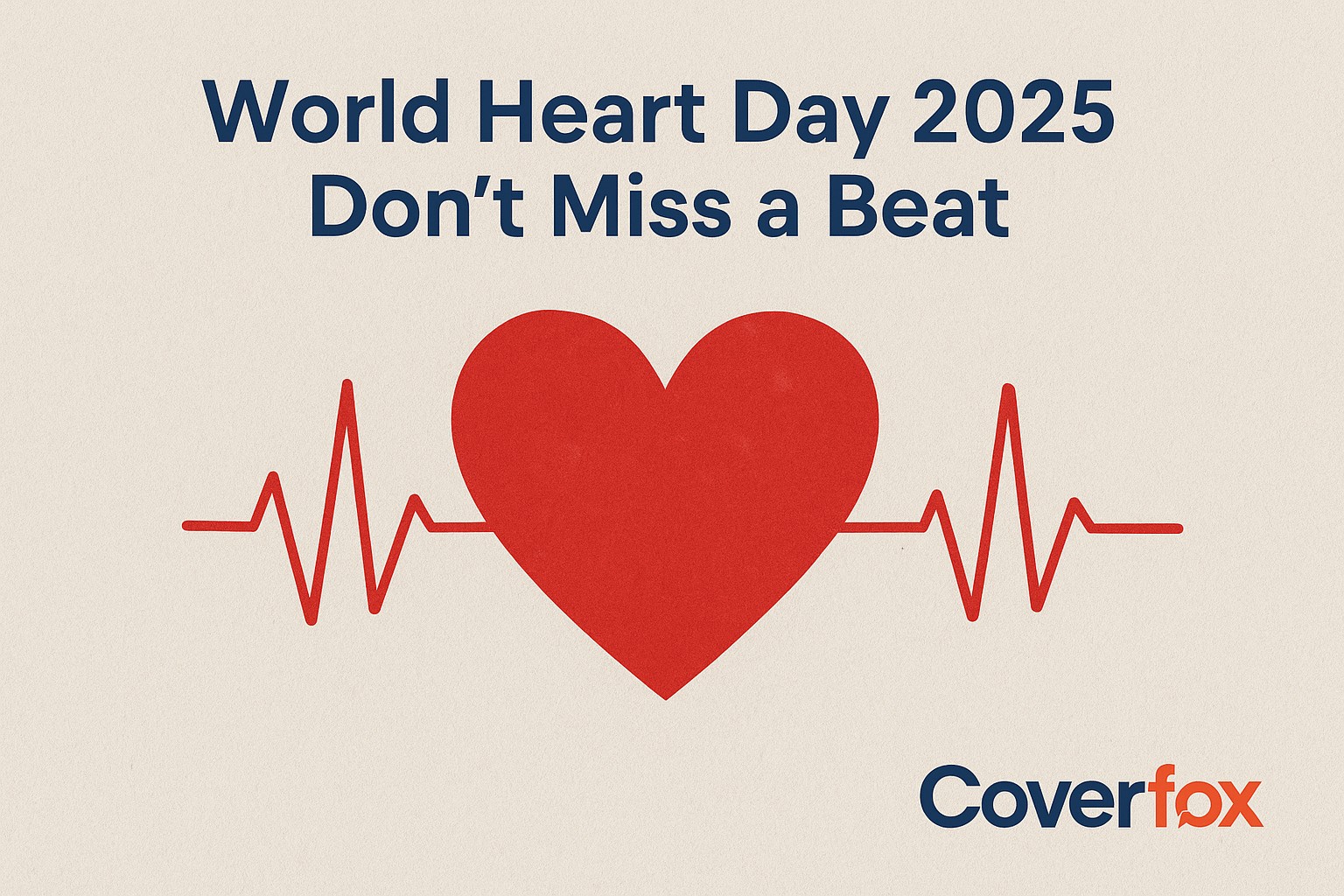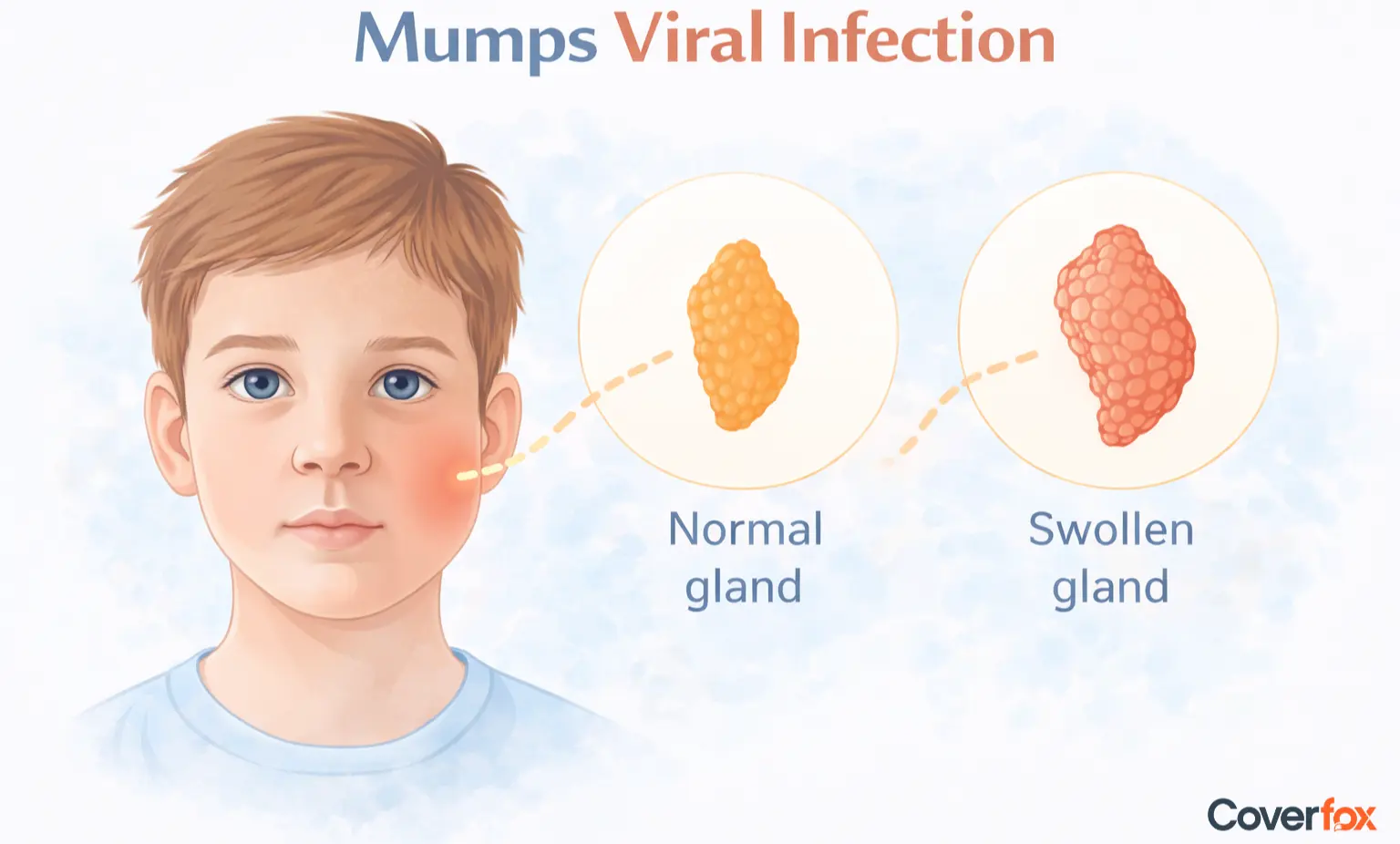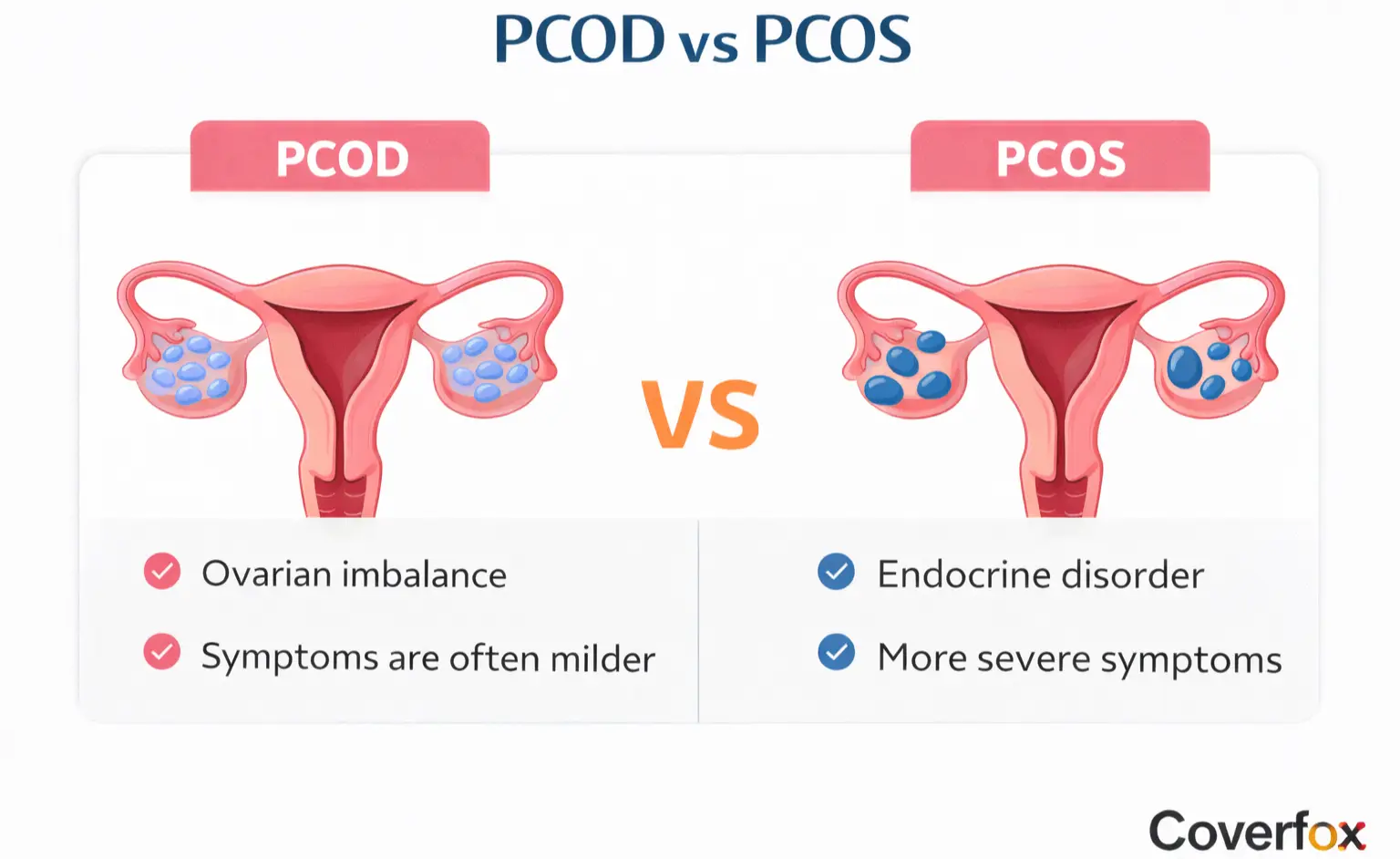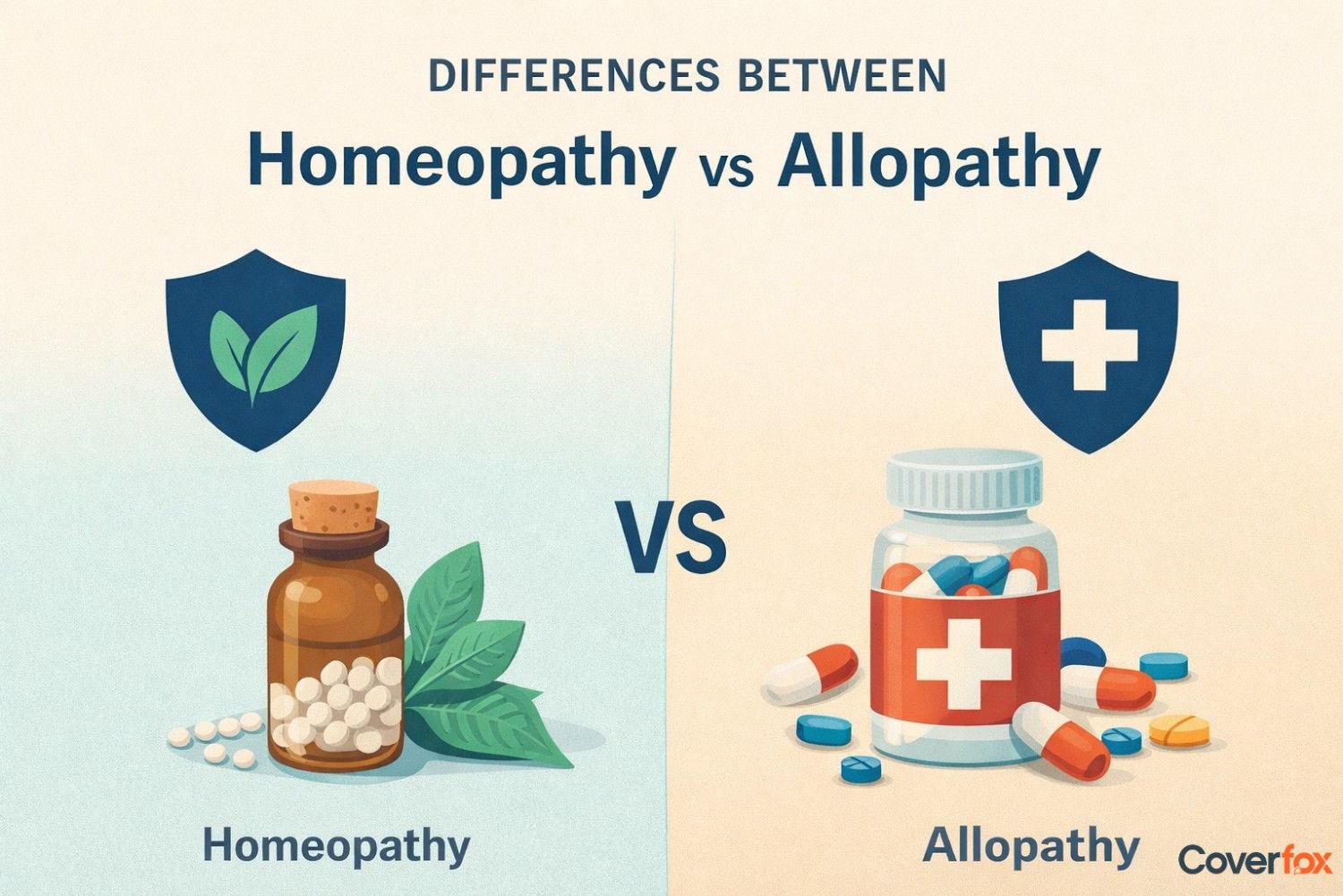World Heart Day is observed on 29 September 2025, with the official theme: “Don’t Miss a Beat”. First held in 2000, the day was initiated by the World Heart Federation (WHF) in collaboration with the World Health Organisation (WHO), and was officially fixed to 29 September in 2011.

The day aims to raise global awareness about cardiovascular diseases (CVDs), promote prevention strategies, and reduce premature deaths caused by heart-related conditions. The urgency is clear: CVDs remain the leading cause of death worldwide - over 20.5 million lives (WHF), making heart health a critical focus for individuals and communities alike.
History of World Heart Day - When and Why It Started
World Heart Day was created to raise awareness about cardiovascular diseases (CVDs) and promote heart health worldwide, evolving into a global movement with a strong focus on prevention and education.
Timeline of Key Events
- 1999: Concept of World Heart Day established by Antoni Bayés de Luna, a renowned cardiologist.
- 2000: First celebration of World Heart Day, organised globally through collaboration between the World Heart Federation (WHF) and the World Health Organisation (WHO).
- 2000–2010: Observed on the last Sunday of September each year, with a different annual theme promoting heart health awareness.
- 2011: Date fixed to 29 September every year to create consistency and strengthen global recognition.
- 2000–Present: Annual themes continued, helping shape worldwide awareness on CVD prevention, risk reduction, and heart-healthy lifestyles.
Theme of World Heart Day 2025 - Don’t Miss a Beat
The official theme for World Heart Day 2025 is “Don’t Miss a Beat”, emphasising the importance of not ignoring early warning signs of heart disease, ensuring continuous access to healthcare, and making heart health a daily priority.
Previous themes (2020–2024) included
- 2024: “Heart Health for All” – Focus on equitable access to cardiovascular care.
- 2023: “Use Heart, Not Smoke” – Highlighting the impact of smoking on heart health.
- 2022: “Love Your Heart” – Encouraging healthy lifestyle changes and awareness of risk factors.
- 2021: “Targeting Heart Health” – Promoting prevention strategies and early diagnosis.
- 2020: “Use Heart for Every Heart” – Focus on community action and heart health promotion.
Compared to these, the 2025 theme builds urgency, motivating individuals and communities to recognise early signs, take immediate action, and prioritise heart health consistently, combining personal responsibility with collective efforts to reduce cardiovascular disease burden worldwide.
Global Heart Health Data 2025
- From recent WHF data: the number of deaths from CVD increased from 12.1 million in 1990 to 20.5 million in 2021.
- Of those CVD deaths, 85% were due to heart attacks and strokes.
- WHF reports that up to 80% of premature heart attacks and strokes are preventable with proper measures.
- More than three-quarters of CVD deaths occur in low- and middle-income countries (LMICs).
- Nearly 25% of heart patients in India are under 40 years old.
- Heart disease strikes Indians nearly 10 years earlier than Western populations.
- 1 in 4 deaths in India is due to cardiovascular disease.
Cardiovascular Disease Burden - Risk Factors & Regional Impact
Cardiovascular diseases (CVDs) are driven by both lifestyle-related behaviours and non-modifiable factors. While many cases are preventable, the global burden continues to rise, especially in low- and middle-income regions.
Leading Risk Factors
Modifiable
Tobacco use, high-salt diet, physical inactivity, harmful use of alcohol, and air pollution (linked to about 25% of CVD deaths).
Non-modifiable
Advancing age, genetic predisposition, and family history of heart disease.
Regional Example – WHO South-East Asia Region
- Around 3.9 million annual deaths are caused by CVDs
- Accounts for nearly 30% of all deaths in the region
- The burden is strongly linked to lifestyle changes, urbanisation, and unequal access to preventive and curative healthcare.
Treatment Gaps
Despite the high burden, access to care remains inadequate. Only about 15% of people with hypertension or diabetes receive effective treatment. This gap in screening, diagnosis, and long-term management highlights the urgent need for stronger health systems, preventive strategies, and equitable access to cardiovascular care.
Preventing cardiovascular diseases starts with everyday choices. Research shows that up to 80% of heart disease cases can be prevented through simple lifestyle changes. By focusing on healthy habits and regular monitoring, individuals can significantly lower their risk of heart-related complications. Tips for maintaining a healthy heart are:
Maintain a healthy BMI
Keep your body mass index within the WHO-recommended range of 18.5–24.9 to reduce the risk of obesity-related heart complications.
Monitor key health indicators
Regularly track blood pressure, cholesterol, and blood glucose levels to detect early warning signs of cardiovascular issues.
Limit salt and processed food
Reducing sodium and avoiding processed meals helps control blood pressure and lowers the likelihood of hypertension.
Avoid smoking and excess alcohol
Smoking damages blood vessels while heavy alcohol use strains the heart, both significantly increasing cardiovascular risk.
Manage stress and sleep properly
Consistent rest and healthy stress management techniques protect heart rhythm and overall cardiovascular health.
Exercise regularly
Aim for at least 150 minutes of moderate or 75 minutes of vigorous physical activity per week, as recommended by WHO, to keep your heart strong.
How the World Celebrates World Heart Day 2025
Every year, World Heart Day is celebrated by diverse global activities aimed at spreading awareness about cardiovascular health. The 2025 observance will be no different, with communities, schools, workplaces, and health organisations coming together to promote healthier lifestyles and heart care.
Typical Activities
- Walkathons and marathons are held in cities worldwide to encourage physical activity.
- Free heart health screenings help people detect early risks such as high blood pressure or cholesterol.
- Educational webinars and workshops provide expert advice on the prevention and management of cardiovascular disease.
- Poster campaigns, awareness drives, and exhibitions spread key messages in public spaces.
- Concerts, charity events, and fundraisers support ongoing heart research and community health programmes.
Global Participation
Events are organised in more than 90 countries annually, engaging a wide network of NGOs, healthcare institutions, schools, and workplaces. This collective effort ensures that awareness reaches people of all ages and backgrounds.
Digital Campaigns
Online platforms amplify the impact with interactive posts, virtual challenges, and video messages from healthcare leaders. Suggested hashtags such as #WorldHeartDay2025 and #DontMissABeat will unite global voices and spread the theme across social media.
Global and Regional Heart Health Initiatives
The World Heart Federation (WHF) and the World Health Organisation (WHO) play a joint leadership role in driving global action against cardiovascular diseases. Their efforts aim to reduce premature deaths, strengthen prevention strategies, and improve access to care worldwide.
A regional programme focused on accelerating cardiovascular disease prevention and control in South-East Asia, where the burden of CVDs is among the highest.
Global Policy Achievements
- 1.97 billion people worldwide are now protected from harmful industrial trans fats through national food policies.
- 124 million people are covered by comprehensive tobacco control laws that limit advertising, packaging, and use.
- 59 million people currently benefit from improved hypertension and diabetes care, addressing two major CVD risk factors.
National-Level Actions
Many countries have reinforced these global initiatives with national policies such as:
- Complete or partial bans on tobacco advertising, public smoking restrictions, and higher taxation on tobacco products.
- Elimination of industrial trans fats from food supply chains.
- Public campaigns and reformulations targeting reduced salt consumption to combat hypertension.
Latest Advances in Cardiovascular Research & Care 2025
Breakthroughs in CVD Research and Care ensure controlling the high numbers of deaths caused by CVDs each year. These breakthroughs not only help in controlling the figures, but also help those affected have an easier and comfortable life ahead. Here are the latest breakthroughs:
Baxdrostat for Resistant / Uncontrolled Hypertension
The Phase III BaxHTN trial (presented at ESC Congress 2025) tested baxdrostat (1 mg or 2 mg daily) in patients whose blood pressure remained high despite being on multiple medications. It produced statistically significant drops in systolic blood pressure (≈9.8 mmHg vs placebo at 2mg dose) with good tolerability.
AI-Based Diagnostic Tools
New studies are showing how AI/ML models can help with early detection and risk stratification of cardiovascular conditions. For instance, an AI tool from Yale can predict the risk of future heart failure using routine ECG images. Also, an ML-based study refined feature-selection techniques for classification of CVD risk with high accuracy (Random Forest, XGBoost models) and emphasis on fairness, interpretability, and bias mitigation.
Weight-Loss Drugs & CVD Risk Reduction
The WHO’s World Heart Report 2025 highlights weight loss interventions and studies showing that obesity diagnosis and management are critical. Some trials (e.g. using semaglutide) show reductions in cardiovascular events (heart attack, stroke) when weight is reduced.
Every Beat Counts
As we celebrate the 25th anniversary of World Cardiac Day in 2025, addressing the relevant CVD issue and canvassing for spreading awareness for the same has become essential more than ever. The fight against the major reasons behind the deaths of millions every year can only be won if we tackle it together – with awareness and knowledge. Leading a healthy lifestyle is the key towards having a healthy heart. So, this International Heart Day, take a step towards a healthy heart and get secured with health insurance to relieve the financial burden on your shoulders!
Also Read:
FAQs on World Heart Day 2025
When is World Heart Day 2025?
World Heart Day 2025 will be observed on 29 September 2025.
Why is World Heart Day celebrated?
It is celebrated to raise global awareness about cardiovascular diseases (CVDs), their prevention, and the importance of adopting a heart-healthy lifestyle to reduce premature deaths.
What is the theme for World Heart Day 2025?
The official theme for 2025 is “Don’t Miss a Beat.”
Who started World Heart Day?
World Heart Day was initiated in 1999 by Professor Antoni Bayés de Luna, former president of the World Heart Federation (WHF), in collaboration with the World Health Organisation (WHO).
How can I participate in World Heart Day 2025?
You can join local and global activities such as awareness walks, heart health screenings, webinars, school campaigns, workplace events, or take part digitally through social media using hashtags like #WorldHeartDay2025 and #DontMissABeat.
Why is 29 September celebrated as Heart Day?
Since 2011, World Heart Day has been fixed on 29 September each year to provide a consistent global date for awareness, moving away from its earlier observance on the last Sunday of September.
When is Heart Day in India?
India observes World Heart Day on 29 September, in line with the global date set by the World Heart Federation.
What is the slogan of World Heart Day 2025?
The 2025 slogan is the theme itself: “Don’t Miss a Beat.”



.webp)
 in Insurance.webp)
